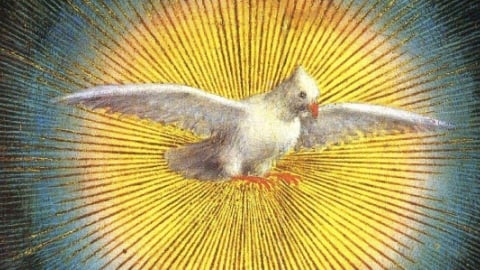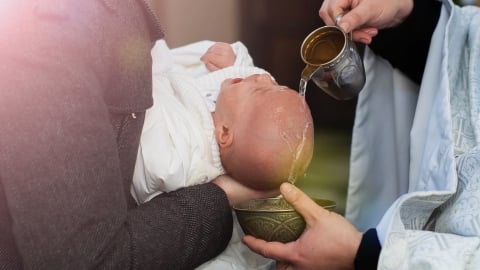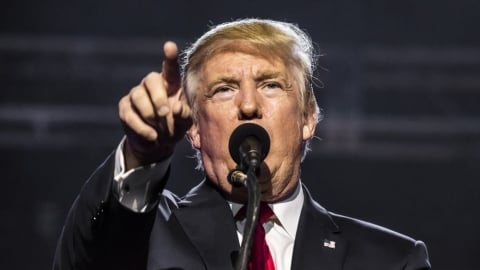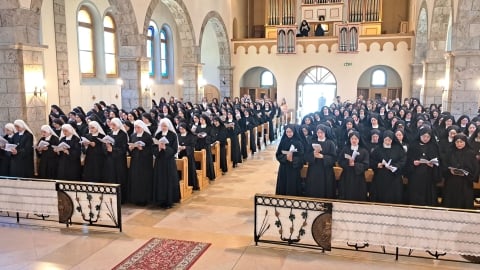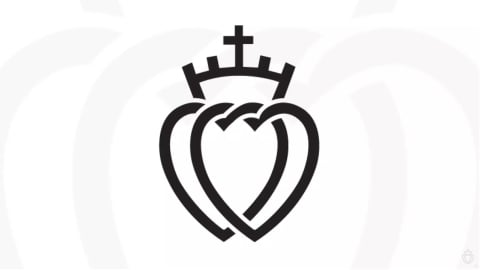Priests: "we are looking for doctrine!"

What draws priests in the Novus Ordo to the Mass of All Time? How does modernist-conciliarism deaden the priesthood?
We republish two pieces published on SSPX.ORG in 2011 about priests in the Novus Ordo who crave the purity and clarity of doctrine found only in Tradition.
Both stories, one from Bishop Fellay and the other from Fr. Massimo Sbicego, demonstrate how through soul-searching, priests in the Conciliar Church continue to be led to learn how to offer the traditional Roman Mass. Some even come to recognize that the conciliarist situation cannot foster their priesthood and turn to the Society of St. Pius X for assistance.
Bishop Fellay comments on what priests in the Novus Ordo are seeking
About 30 Italian diocesan priests who have contacted the Society of St. Pius X met with Bishop Fellay in December 2010.
Bishop Fellay asked them the question: What do you expect from the Society of St. Pius X? Aside from a few who asked “to learn to celebrate the old rite”, the majority replied, “We are looking for doctrine.”
That brought him to illustrate the case of an Italian Vicar General who said to one of the members of the SSPX, “I began to read the catechism of St. Pius X; well, I admit that I would not be able to answer those questions… because no one ever taught me to do so!”
Bishop Fellay added that these admissions by the priests are sad: “They didn’t teach us anything!” It is as though many of them, despite their university degrees and years of study, had been equipped with useless doctrinal tools, with containers but not with Catholic content. That is why all of them, almost instinctively, crave the teaching of St. Thomas!
Priests who learn to celebrate the Mass of All Time undergo a spiritual renewal. Through the rite the doubts of their souls begin to be cleared up, and they begin “to put their lives in order again and to put in order also their relations with the faithful.” Bishop Fellay describes this as “the work of grace on the priest through the Mass”.
Thus the liturgy leads to doctrine and doctrine to morality, because “faith without works is dead.” And thereby the priest discovers a new yet ancient way of being faithful to his own ministry. And he does so above all by rediscovering “objectivity and realism”.
As an example of these priests who contact the Society all around the world and sometimes decide to join it, we offer below the story of Don Massimo Sbicego, an Italian priest who decided to leave his parish on December 25th.
Fr. Massimo Sbicego: “This is why I went over to the SSPX”
We reprint here the text of an article published January 12, 2011, on the website Corriere del Veneto concerning Fr. Sbicego’s transfer. Also on the site is the complete text of the letters by the young priest from Vicenza.
Two news reports about Fr. Sbicego's case
VICENZA—A painful decision, preceded by a series of tormented thoughts, made even more stressful by the silence of a remote town like Pedemonte. There, in the isolation of the Valle dell’Astico, Fr. Massimo Sbicego, a 38-year-old priest born in Montecchio Maggiore, who was assigned to lead the local religious community in September 2009, allowed his decision to ripen over the past months: to transfer to the traditionalist Society of St. Pius X, founded by Archbishop Marcel Lefebvre (a great opponent of the Second Vatican Council, champion of the Tridentine Mass and enemy of ecumenism, who was excommunicated in 1988 for having ordained four bishops [without permission]). Benedict XVI in a way legitimized the work of the Society by lifting the excommunications on the bishops consecrated by the founder. And so at the end of last year Fr. Massimo left the countryside, an unexpected departure which aroused the curiosity of the townspeople and even some romantic speculation.
But now to explain the mystery, here are two letters [by Fr. Massimo], one written to Msgr. Ludovico Furian, Vicar General of the Diocese [of Vicenza], and one addressed to his former parishioners: material which only yesterday was delivered to the local community, starting with the mayor, Roberto Carotta. This correspondence is full of reflections from which emerges also a direct critique of the modern Church: “For me today it is incredible and intolerable that the Holy Mass… should be subjected to review by those who consider it ‘wearisome’,” Fr. Massimo writes to the head of the Diocese of Vicenza:
that some feel the need to ‘reflect on how to evaluate its symbols’ creatively with people who have understood little or nothing about the life and Sacrifice of Our Lord. On the other hand I realize that this problem is connected with the convivial character of the vernacular Mass; if the supper is not involving, lively, emotional, it is an unwelcome invitation; there is a risk of devising a celebration and a Church that are adolescent, aimed at ‘involving’ people rather than ‘sanctifying’ them."
This critique extends also to catechetical methods and to the danger of
unconsciously assuming the mentality of today’s world with its egotism, its lack of a spirit of sacrifice, of mortification, its denial or ignorance of the supernatural, and its religious and ethical relativism."
“The painful thing is that our catechetical courses promote all that,” Fr. Massimo writes, “whereas Catholic doctrine is neglected, not taught, sometimes even ridiculed so as to emphasize the ‘human dimensions’ that never get around to the real purpose: developing a mature, conscious and unconditional choice of the Catholic faith and way of life.” It was a personal struggle against the “lukewarm faith” of today’s Church, recounted in writing yesterday to the lay faithful also, whom Fr. Massimo claims to have protected precisely by his quiet departure. Fr. Massimo assures his readers that his was “a conscientious decision, a search for Truth, which is Our Lord…. In the Society I found the deep meaning of the Catholic Priesthood, so much so that I could venture to say, ‘To many it will seem that I am leaving the Diocese; in reality, as a Catholic, I am coming back home.’”—Silvia Maria Dubois
Fr. Massimo Sbicego, the parish priest from Vicenza who entered the Society of St. Pius X a few days ago, has graciously sent us a copy of the letter that he wrote to his former parishioners, together with a copy of the correspondence in which he explained his decision to the chancery officials of the Diocese of Vicenza. Whatever opinion one may have personally about the priest’s painful and deliberate decision, I think that his courteous, respectful tone toward the diocesan authorities and toward the parishioners themselves is very much appreciated, especially since it is accompanied by true firmness and clarity concerning the doctrinal and liturgical questions that prompted this major step.—Enrico
Fr. Massimo Sbicego’s letters
Departing letter to his parish
January 11, 2011
Dear Brothers and Sisters in Christ,
It seems to me appropriate, after the passage of several days, to emerge from the discreet silence that characterized my departure: above all, please know that I too was unhappy that I could not greet you personally to testify to the great respect that I have for you.
My decision to enter the Priestly Society of St. Pius X and the reasons that led to it are not something recent; two years ago I already spoke about it with Archbishop Nosiglia, then Bishop of Vicenza, to obtain permission to spend a “sabbatical” year at a house of that institute.
Last month, in mid-December, I again discussed my decision frankly with Msgr. Furian; the Diocesan Administrator received me and listened to me with the utmost kindness, expressing his wish that I should leave to the diocesan authorities the task of giving explanations. The same plan was mentioned to me afterward by the Vicar for rural parishes [Vicario foraneo] as well. The request seemed reasonable to me, and complying with it seemed to me to be a sign of good will toward my superiors, whom I intended to leave free to manage as best they could the situation that would be created; therefore I went away quietly, in order to avoid involving you directly in this delicate question of conscience. That’s all. [Tutto qui; i.e., that is what I intended, and no more.]
Following this letter you will find the full text of the letter and the cover letter that I sent to Monsignor Furian after our personal conversation in mid-December; these are documents that express not only my consciousness of an ecclesial [Church-related] situation but also my personal interior life.
I thank all those who in these recent days have expressed to me their sympathy; I greet you with affection and ask the Lord to bless you.
Fr. Massimo
Last letter to his diocesan administrator, Msgr. Ludovico Furian
Pedemonte, December 21, 2010
Dear Fr. Ludovico,
Accept my heart-felt thanks for your paternal concern during our conversation on December 14 and for your subsequent letter; in it I vividly sensed your esteem, understanding and kindness toward me, which moreover is mutual.
Besides being a conscientious decision, my choice of the Society of St. Pius X is based on a search for Truth, which is Our Lord, and on profound doctrinal convictions which challenged [interrogato] and sometimes disturbed me for years, to the point of calling into question the ministry that I had received. In the Society I found the deep meaning of the Catholic Priesthood, so much so that I could venture to say, “To many it will seem that I am leaving the diocese; in reality, as a Catholic, I am coming back home.”
Fr. Massimo
Initial letter to his diocesan administrator, Msgr. Ludovico Furian
Pedemonte, December 14, 2010
To Msgr. Ludovico Furian, Diocesan Administrator
I write these few lines to give my reasons for a decision which is a conscientious choice, made in faith and above all consistent with Our Lord’s call to the Priesthood and with the priestly ideal.
Often we priests are asked whether we have had a personal encounter with Jesus; today I can say, “Yes! I have encountered Him.” I encountered Him at the foot of a cross that stood over an old altar, while I offered the Holy and Spotless Victim, for my sins, for those who were in attendance at that Holy Mass, and for all Christian believers, living and deceased. I encountered Him through a liturgical rite, the Mass of all ages, the one which the Holy Father wants to make known again despite a thousand obstacles. It signifies much more than an external ceremony: it really makes present Calvary and the Sacrifice of the Cross in my hands; in a mysterious yet clear way it causes me to be and to feel united to Christ, especially through the desire to imitate Him as a priest, a pastor, and somehow also as a victim, offering my daily crosses in union with Him.
As I celebrated the Holy Sacrifice, the Lord Himself reawakened in me a seed that had been dulled, almost suffocated by inconclusive pastoral programs and fanciful “anthropological approaches”: the seed of His call to the priesthood: “I want you to save souls through Me,” is the idea that springs from the Holy Sacrifice of the Mass, the one sacrifice, the Holy Mass of All Time. For me today it is incredible and intolerable that the Holy Mass, the living, pulsating heart of Grace in the Church, should be subjected to review by those who consider it “wearisome”, that some feel the need to “reflect on how to evaluate its symbols” creatively with people who have understood little or nothing about the life and Sacrifice of Our Lord. On the other hand I realize that this problem is connected with the convivial character of the Novus Ordo; if the supper is not involving, lively, emotional, it is an unwelcome invitation; I think that there is a very real risk of devising a celebration and a Church that are adolescent, aimed at “involving” people rather than “sanctifying” them.
One authoritative voice has spoken about a “silent apostasy”: the same phenomenon that I noticed spreading among our children and young people while teaching them at the middle school and high school levels, meeting them in the parish rather than on the street; I think that this comes from unconsciously assuming the mentality of today’s world with its egotism, its lack of a spirit of sacrifice, of mortification, its denial or ignorance of the supernatural, religious and its ethical relativism, etc. The painful thing, though, is that our catechetical courses, parish groups, and RCIA promote all that, whereas Catholic doctrine is neglected, not taught, sometimes even ridiculed so as to emphasize the “human dimensions” that never get around to the real purpose: developing a mature, conscious and unconditional choice of the Catholic Faith and way of life.
In this respect the Tridentine Mass forces us, with the power of Grace and Tradition, to call into question our lukewarm faith and to consider a reform of our personal lives, together with a sensible ecclesiology in which 1) the lay faithful carry on their battle in the world, at work, in the family, in sports, discovering that the world does not love them because they belong to Christ and the Catholic Church; and 2) Priests dedicate themselves to God, in prayer and in their apostolate, so as to sustain, exhort, and train the faithful and to give them the sacramental Grace which is Christ Himself.
Although waged by peaceful methods, this battle is not irenic, and certainly not “low-profile”; I think that it is high time for the Church to have the courage of the Truth, to declare it again today, because Doctrine is not her property but is rather a precious Deposit which Christ has given her: the Unicity [Uniqueness] of Salvation by Our Lord; the sense of a life directed toward the Four Last Things; the sense of Christ’s Sacrifice, from which each soul can receive saving Grace; the sense of a serious commitment, made up of self-denial and charity, which the Lord will reward at the opportune time; the sense of the True, Real Presence of Christ in the Sacred Host; the sense of Hope for all who have been crucified throughout history because Christ was the first of them and continues to be daily on the altar; the sense of a Church still capable of teaching youngsters to kneel down to recite the Holy Rosary; the sense of a Word in the service of the Holy Sacrifice; a Word illuminated by constant Tradition rather than delivered up to extemporaneous, ephemeral interpretations, to the suggestive “magisterium” of the unlikely exegete of the day, as opposed to the Magisterium of the Church.
All this reminds me of the passage from St. Paul:
For there shall be a time when they will not endure sound doctrine but, having itching ears, they will surround themselves with teachers according to their own desires, and will indeed turn away their hearing from the truth, but will turn instead to fables.” (II Timothy 3-4)
And how much confusion I can see, how many trivial pursuits [banalita], how many tall tales [sparate], how many “theologies” in that text!
Today I am ready to choose Our Lord, perhaps more than when I was ordained ten years ago, because I see the story of what He has done with me; although saddened by so many confreres who, even recently, have abandoned their ministry, with a bit of nostalgia for the diocese which I continue to love and to which I remain deeply connected, today I choose to continue my consecrated life in a place where He is present with Truth, Faith, Doctrine, Hope, for a future of rebuilding the Church: the Priestly Society of St. Pius X.
I humbly ask a simple man with a sincere smile, a bishop of enormous stature, Bishop Bernard Fellay, to enlist me in the struggle against the self-destruction of the Church, so that Christ might rise again in human hearts and societies.
With this letter therefore I submit my resignation as pastor of the Pastoral Unit [conglomeration of parishes?] Alta Valdastico as of noon on December 30, with a promise of my prayers for you, Monsignor, and asking you to provide pastoral care for those beloved parishioners.
As long as I have remained here I have put my heart into my work and have tried to hand on a little of the Catholic Faith anyway, [but] without the Holy Mass of all ages, the Tridentine Mass, “heaven remains closed and drift is inevitable” (Michael Davies, Cranmer’s Godly Order).
With confidence in your respect for a conscientious and distressing decision and in the close prayer that unites us to the One Catholic Church, I beg the Lord that “Corpus Domini nostri Iesu Christi custodiat animam nostram in vitam aeternam” [the Body of our Lord Jesus Christ might preserve our souls unto eternal life].
Very truly yours,
Fr. Massimo Sbicego
